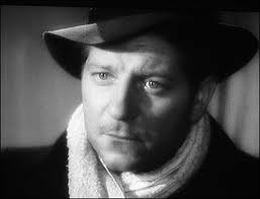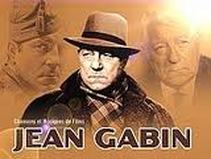
Gabin continued rejecting Hollywood offers until the Second World War broke out. He then went to the US with Julien Duvivier and Jean Renoir after the Germans took over France, where he soon engaged in an affair with Marlene Deitrich. Unfortunately, he was not as successful in America.
Gabin further damaged his Hollywood career when he inordinately demanded to let Dietrich become the co-star in a movie he was making under RKO pictures. Gabin was fired following the dispute, and the film was cancelled.
He then joined the Free French Forces under General Charles de Gaulle, and received the ‘Médaille Militaire’ and a ‘Croix de Guerre’ for his bravery in combat during the fight in North Africa.
Gabin returned to show business in France, but his behaviour constantly got him in trouble. Moreover, several of his subsequent films turned out poorly at the box office, and his attempts at a return to the stage failed to meet success as well.
He managed to regain momentum with Jacques Becker’s ‘Touchez pas au grisbi’ in 1954.
Gabin succumbed to leukaemia at the American Hospital of Paris, in Neuilly-sur-Seine. His remains were cremated and his ashes were scattered with full military honours from a military ship.
He was recognised as one of the most famous actors of French cinema, and was admitted into the Legion of Honor. In Mériel, his town of birth, the Musée Jean Gabin presents his film and war memorabilia.
Gabin further damaged his Hollywood career when he inordinately demanded to let Dietrich become the co-star in a movie he was making under RKO pictures. Gabin was fired following the dispute, and the film was cancelled.
He then joined the Free French Forces under General Charles de Gaulle, and received the ‘Médaille Militaire’ and a ‘Croix de Guerre’ for his bravery in combat during the fight in North Africa.
Gabin returned to show business in France, but his behaviour constantly got him in trouble. Moreover, several of his subsequent films turned out poorly at the box office, and his attempts at a return to the stage failed to meet success as well.
He managed to regain momentum with Jacques Becker’s ‘Touchez pas au grisbi’ in 1954.
Gabin succumbed to leukaemia at the American Hospital of Paris, in Neuilly-sur-Seine. His remains were cremated and his ashes were scattered with full military honours from a military ship.
He was recognised as one of the most famous actors of French cinema, and was admitted into the Legion of Honor. In Mériel, his town of birth, the Musée Jean Gabin presents his film and war memorabilia.

 RSS Feed
RSS Feed